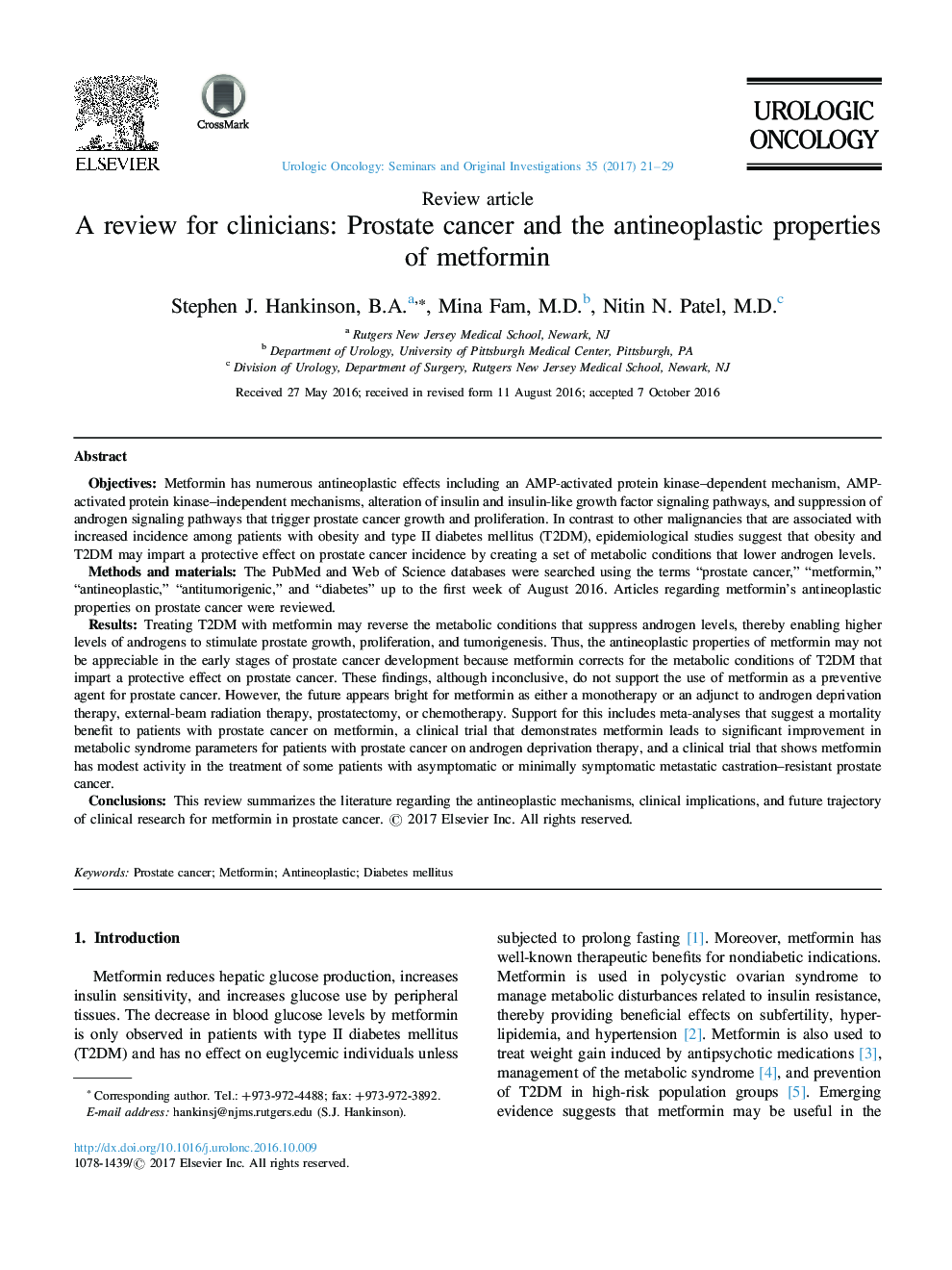| Article ID | Journal | Published Year | Pages | File Type |
|---|---|---|---|---|
| 5702742 | Urologic Oncology: Seminars and Original Investigations | 2017 | 9 Pages |
â¢The antineoplastic properties of metformin.â¢Inverse association between diabetes and the risk of developing prostate cancer.â¢Metformin has morbidity and mortality benefits for patients with prostate cancer.â¢Metformin potentiates chemotherapeutical regimens.
ObjectivesMetformin has numerous antineoplastic effects including an AMP-activated protein kinase-dependent mechanism, AMP-activated protein kinase-independent mechanisms, alteration of insulin and insulin-like growth factor signaling pathways, and suppression of androgen signaling pathways that trigger prostate cancer growth and proliferation. In contrast to other malignancies that are associated with increased incidence among patients with obesity and type II diabetes mellitus (T2DM), epidemiological studies suggest that obesity and T2DM may impart a protective effect on prostate cancer incidence by creating a set of metabolic conditions that lower androgen levels.Methods and materialsThe PubMed and Web of Science databases were searched using the terms “prostate cancer,” “metformin,” “antineoplastic,” “antitumorigenic,” and “diabetes” up to the first week of August 2016. Articles regarding metformin's antineoplastic properties on prostate cancer were reviewed.ResultsTreating T2DM with metformin may reverse the metabolic conditions that suppress androgen levels, thereby enabling higher levels of androgens to stimulate prostate growth, proliferation, and tumorigenesis. Thus, the antineoplastic properties of metformin may not be appreciable in the early stages of prostate cancer development because metformin corrects for the metabolic conditions of T2DM that impart a protective effect on prostate cancer. These findings, although inconclusive, do not support the use of metformin as a preventive agent for prostate cancer. However, the future appears bright for metformin as either a monotherapy or an adjunct to androgen deprivation therapy, external-beam radiation therapy, prostatectomy, or chemotherapy. Support for this includes meta-analyses that suggest a mortality benefit to patients with prostate cancer on metformin, a clinical trial that demonstrates metformin leads to significant improvement in metabolic syndrome parameters for patients with prostate cancer on androgen deprivation therapy, and a clinical trial that shows metformin has modest activity in the treatment of some patients with asymptomatic or minimally symptomatic metastatic castration-resistant prostate cancer.ConclusionsThis review summarizes the literature regarding the antineoplastic mechanisms, clinical implications, and future trajectory of clinical research for metformin in prostate cancer.
